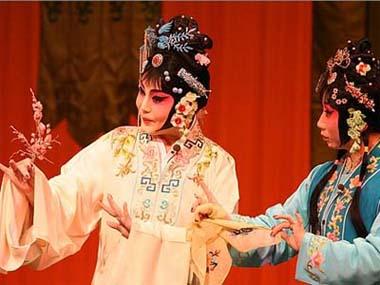Kunqu: Humankind's Common Cultural Heritage
2009-06-25 21:36 BJT
Kunqu Opera is one of the oldest forms of opera still existing in China, with its origins dating back to the Yuan dynasty (1271-1368). It has distinguished itself by the virtuosity of its rhythmic patterns (changqiang) and has exerted a dominant influence on all the more recent forms of opera in China, including the Sichuan and Beijing operas.
In May 2001, UNESCO for the first time awarded the title of "Masterpieces of the Oral and Intangible Heritage of Humanity" to 19 outstanding cultural forms of expression from different regions of the world. Kunqu Opera, a school of traditional Chinese opera, was among them. It is the only Chinese art form listed, and is now a facet of the common cultural heritage of humankind.
 |
Criteria used in the selection process were outstanding value, roots in cultural tradition, affirmation of cultural identity, source of inspiration and intercultural exchange, contemporary cultural and social role, excellence in the application of skills, unique testimony of living cultural tradition, and risk of disappearing. This initiative to help preserve traditional and popular culture is intended to complement UNESCO's World Heritage List of natural and cultural sites. Inclusions under this category include languages, stories, music, games, dances, customs and various performing arts.
UNESCO has pointed out that many forms of intangible cultural heritage are in danger of extinction. It aims to encourage governments and non-governmental and local organizations to appraise, protect and utilize their national heritage in order to maintain the cultural diversity of all countries, within the overall trend of globalization.
Editor: Zhao Yanchen | Source: CCTV.com
 Mail
Mail Share
Share Print
Print


 Video
Video









 2009 China Central Television. All Rights Reserved
2009 China Central Television. All Rights Reserved